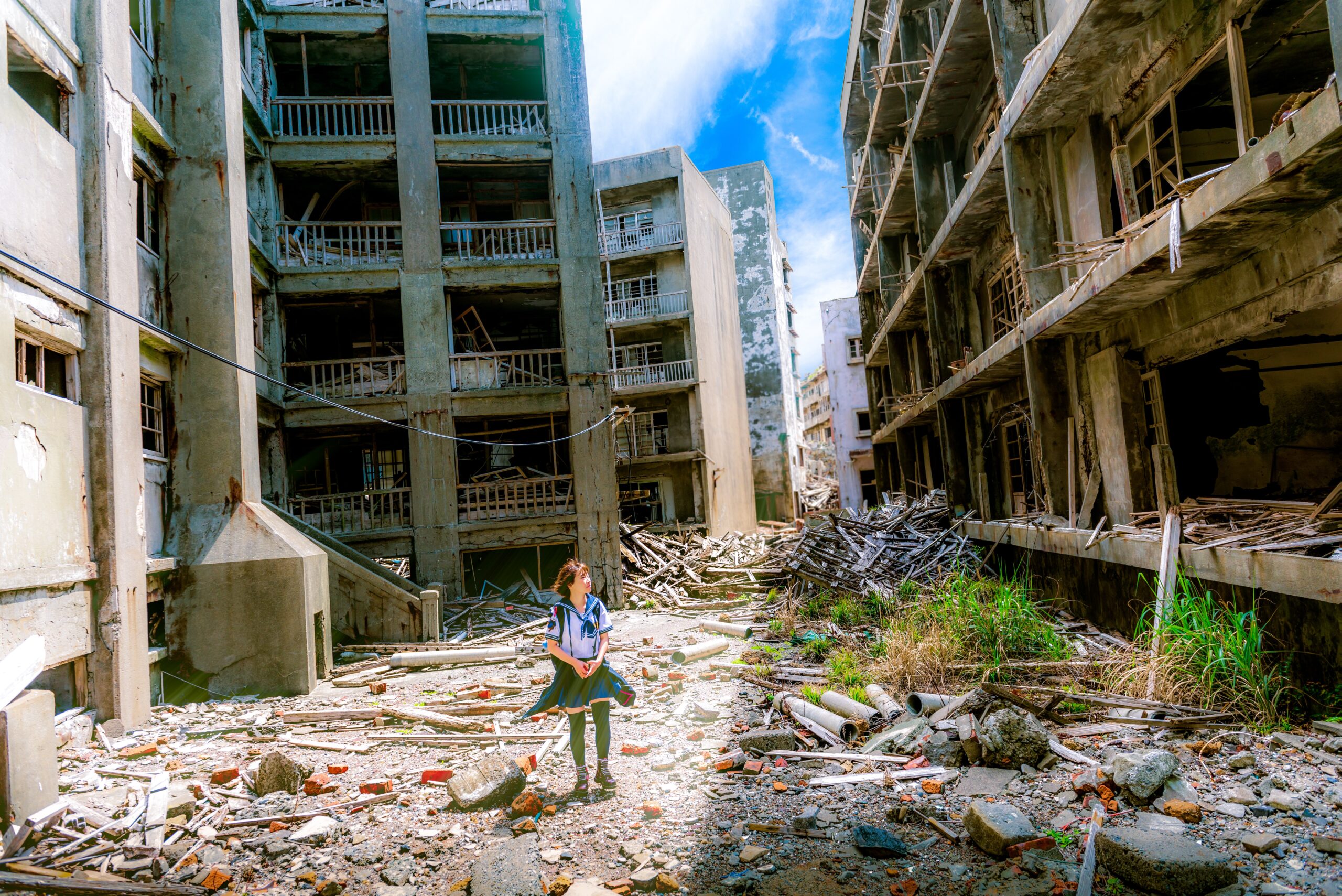
音声を繰り返し聴いてリスニング力をアップしましょう!
同時に発声してスピーキング力もアップしましょう!!
シャドウイングにも挑戦してみましょう!!!
Debris
意味:
- 破片、がれき。通常、破壊された物体や建物から生じた散らばった破片や破損した部分を指します。
品詞:
- 名詞(Noun)
発音記号:
- /ˈdɛbri/
使い分けのポイント:
- “Debris”は通常、壊れた物体や建物からの散在した破片や残骸を指します。複数形も “debris” となります。
例文:
- After the explosion, the area was covered in debris from the collapsed building.
- 爆発の後、その地域は崩壊した建物からのがれきで覆われていました。
- The cleanup crew worked tirelessly to remove the debris left by the storm.
- 掃除のクルーは、嵐が残したがれきを取り除くために不断の努力をしました。
- In the aftermath of the earthquake, streets were blocked by debris, making rescue efforts challenging.
- 地震の直後、通りはがれきでふさがれ、救助活動が困難となりました。
Ruins
意味:
- 廃墟、残骸。建物や構造物が崩壊して残った状態を指します。
品詞:
- 名詞(Noun)
発音記号:
- /ruːɪnz/
使い分けのポイント:
- “Ruins”は建物や構造物が崩壊して残った状態を指し、”debris” よりも特定の場所や遺跡を強調する傾向があります。
例文:
- Exploring the ancient ruins, archaeologists uncovered artifacts that provided insights into the past civilization.
- 古代の遺跡を探索する中、考古学者たちは過去の文明についての洞察を提供する遺物を発見しました。
- The city was left in ruins after the devastating earthquake.
- 壊滅的な地震の後、その都市は廃墟となりました。
- Tourists flock to explore the historical ruins of the ancient city.
- 観光客たちは古代都市の歴史的な遺跡を探索するために押し寄せてきます。
Wreckage
意味:
- 残骸、破損した部分。通常、船舶や乗り物の事故後の破損した部分や残骸を指します。
品詞:
- 名詞(Noun)
発音記号:
- /ˈrɛkɪdʒ/
使い分けのポイント:
- “Wreckage”は通常、船舶や乗り物の事故で生じた破損した部分や残骸を指し、”debris” よりも特定の事故に焦点を当てる傾向があります。
例文:
- The search and rescue team located the wreckage of the missing plane in a remote mountain area.
- 捜索救助チームは、行方不明の飛行機の残骸を遠隔の山岳地帯で見つけました。
- The storm left behind a trail of wreckage, including damaged buildings and fallen trees.
- 嵐は壊れた建物や倒れた木など、残骸の痕跡を残しました。
- Despite the wreckage, everyone on board the crashed train survived with minor injuries.
- 残骸があるにもかかわらず、墜落した列車に乗っていた全員が軽傷で生き残りました。
Detritus
意味:
- 粉々に砕かれた状態のがれきや残骸。通常、小さな破片や破損した部分を指します。
品詞:
- 名詞(Noun)
発音記号:
- /dɪˈtraɪtəs/
使い分けのポイント:
- “Detritus”は通常、小さな破片や破損した部分を指し、”debris” よりも細かい状態の残骸に焦点を当てる傾向があります。
例文:
- The riverbank was covered in detritus carried downstream by the floodwaters.
- 川岸は洪水によって下流に運ばれたがれきで覆われていました。
- After the explosion, the area was littered with detritus from the shattered windows and crumbling walls.
- 爆発後、その地域は割れた窓や崩れた壁からのがれきで散らかっていました。
- Ecologists studied the detritus in the forest to understand the impact of human activities on the ecosystem.
- 生態学者は、森林のがれきを調査して、人間の活動が生態系に与える影響を理解しました。
Remnants
意味:
- 残り物、残骸。過去の出来事や状態から残った残り物や痕跡を指します。
品詞:
- 名詞(Noun)
発音記号:
- /ˈrɛmnənts/
使い分けのポイント:
- “Remnants”は一般的に、過去の出来事や状態から残った物や痕跡を指し、”debris” よりも歴史的な要素に焦点を当てる傾向があります。
例文:
- The archaeological site revealed remnants of an ancient civilization, including pottery and tools.
- 考古学の現場では、古代文明の遺物が陶器や道具を含めて明らかになりました。
- The abandoned factory stood as a remnant of the industrial era that once thrived in the area.
- 放棄された工場は、かつてその地域で栄えた産業時代の名残りとして残っていました。
- Despite the modern renovations, the old building retained remnants of its historical architecture.
- 現代の改修があったにもかかわらず、古い建物は歴史的な建築の名残りを保持していました。
Scatterings
意味:
- 散在物、散らばったもの。広がって散在する物や物の集まりを指します。
品詞:
- 名詞(Noun)
発音記号:
- /ˈskætərɪŋz/
使い分けのポイント:
- “Scatterings”は通常、広がって散在する物やその集まりを指し、”debris” よりも広範で散らばった状態を強調する傾向があります。
例文:
- The beach was covered in scatterings of seashells brought in by the tide.
- 潮によってもたらされたカラ貝の散在物でビーチは覆われていました。
- Aerial views revealed the scatterings of debris across the vast disaster-stricken area.
- 空中からの眺めでは、広範な災害地域にわたるがれきの散在が明らかになりました。
- The hikers discovered scatterings of colorful wildflowers in the mountain meadow.
- ハイカーたちは山の中の牧草地に散在する色とりどりの野生の花を発見しました。


